CMN 317
Information, Technology, and Control

1. Course Description
The shift from industrial to information society is characterized by the integration of information and information technologies into the political process, the economy, health, and other areas. While information technologies open up possibilities for citizens to engage in public life, they also offer regulatory institutions modes of monitoring and controlling citizens. This course examines the relationship between information technologies and governance, and develops students’ capacity to engage critically with competing notions of the information society.
Last Revised
Prerequisites
CMN 100 or CMN 114 or CMN 124 or CMN 200 or CMN 201 or CMN 207 or CMN 279 or CMN 300 or CMN 373 or Direct Entry
Delivery
Lecture: 3 hours
2. Course Objectives & Learning Outcomes
- To evaluate a range of perspectives and approaches to governance in the information society
- To critically assess the democratic potential and actual use of information technologies in the governance of diverse aspects of life
- To gain an appreciation of the role of tactical and alternative media practices in democratic communication
3. Topics Covered
- Critical theories of governance
- Information society
- Privacy
- Security
- Intellectual property
- Political communication
- Tactical media
All topics will be covered, but not necessarily in the order listed above
4. Teaching Method
The course consists of lectures, in-class activities and discussion, and student presentations. Students prepare at least three written assignments and one oral presentation.
5. Course Materials
All required readings are available online and can be accessed through the course website.
6. Policy
6.1 University Policies
Students are required to adhere to all applicable university policies found in their Online course shell in D2L and the Course Outline Policies.
6.2 Print and Digital Copying Guidelines:
Toronto Metropolitan University complies with Canada’s Copyright Act which protects both creators/owners and users of copyrighted materials. Students should familiarize themselves with TMU Copyright policies and procedures, and contact the Copyright and Scholarly Engagement Librarian at copyrt@ryerson.ca for questions, concerns and clarification of the copyright rules.
6.3 Turnitin.com
Turnitin.com is a plagiarism prevention and detection service to which Toronto Metropolitan University subscribes. It is a tool that helps instructors determine the similarity between student work and the work of other students who have submitted papers to the site (at any university), Internet sources, and a wide range of books, journals, and other publications. While it does not contain all possible sources, it gives instructors some assurance that students’ work is their own. No decisions are made by the service; it generates an “originality report,” which instructors must evaluate to judge whether something is plagiarized.
Students agree by taking this course that their written work will be subject to submission for textual similarity review to Turnitin.com. All submitted papers will be included as source documents in the Turnitin.com reference database solely for the purpose of comparing the similarity of such papers. Use of the Turnitin.com service is subject to the terms-of-use agreement posted on the Turnitin.com website. Students who do not want their work submitted to this plagiarism detection service must, by the end of the second week of class, consult with their instructor to make alternative arrangements. Even when an instructor has not indicated that a plagiarism detection service will be used, or when a student has opted out of the plagiarism detection service, if the instructor has reason to suspect that an individual piece of work has been plagiarized, the instructor is permitted to submit that work in a non-identifying way to any plagiarism detection service.
6.4 Email Communication
Toronto Metropolitan University requires that any official or formal email communication from students be sent from their official Toronto Metropolitan University electronic accounts.
6.5 Video and Audio Recording
No video or audio recording is permitted in class without the express permission of the instructor.
7. Learning Management System
Toronto Metropolitan University supports Brightspace by D2L as its official Learning Management System. University Policies governing Brightspace have been documented at the Courses @ Toronto Metropolitan University Privacy and Security website.

